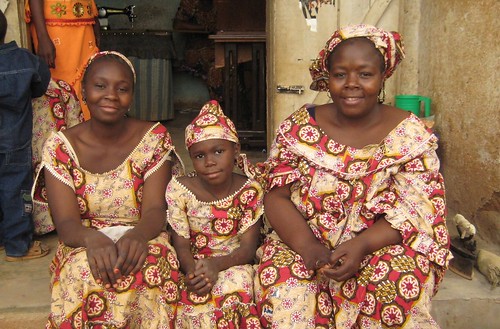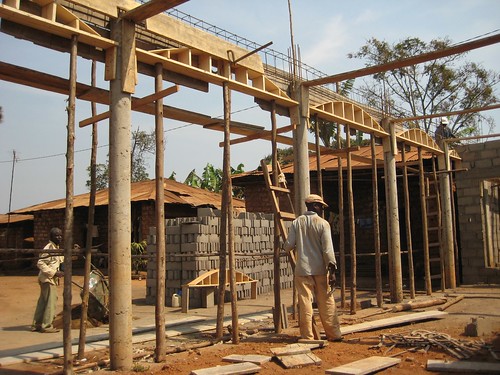Pilot program focuses on southwestern Cameroon
 Tuesday, December 7, 2010 at 02:36PM
Tuesday, December 7, 2010 at 02:36PM  This September, after many months of research, BreakingGround launched a pilot agricultural program in the villages of Folepi and Nkong. The pilot, which will transition farmers to more productive species of palm and cocoa trees, is a vital steptoward developing a larger program in the Wabane-Alou valley of southwest Cameroon.
This September, after many months of research, BreakingGround launched a pilot agricultural program in the villages of Folepi and Nkong. The pilot, which will transition farmers to more productive species of palm and cocoa trees, is a vital steptoward developing a larger program in the Wabane-Alou valley of southwest Cameroon.
The majority of families who live in the valley rely on income from palm oil and cocoa. While men are responsible for harvesting the palm nuts, men and women work together during the extraction of the red palm oil. Women, helped by adolescent girls, are exclusively responsible for cracking the palm kernels and extracting the palm kernel oil. Often, siblings like Mathias and Catherine (pictured above), work together to collect the palm nuts and cocoa pods from their land.
In October, despite heavy rains, Breaking Ground Program Director Paul Zangue worked with the villagers of Folepi and Nkong to set up a palm tree nursery in each village. We are also working with the National Agricultural Research Institute for Development, which has provided cocoa pods as part of a national sustainable agriculture program. By the end of the year, both villages will have a nursery of these improved cocoa pods.
In adition, we will train farmers in plantation management and begin a Women’s Entrepreneurial Program adapted to the needs of these agricultural communities. Classes will cover crop diversification,
family budgeting, and maternal and infant health. After the completion of the pilot, we hope to expand our work to other villages in the valley and provide loans for mechanized palm oil presses. These communities are motivated and excited to learn new methods, increase their income, and invest in their collective needs: potable water, passable roads, and better schools.





